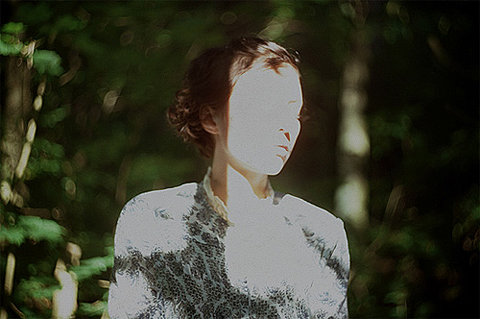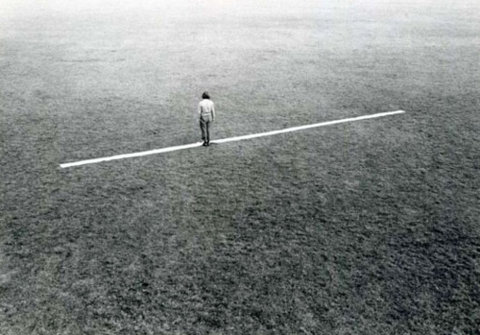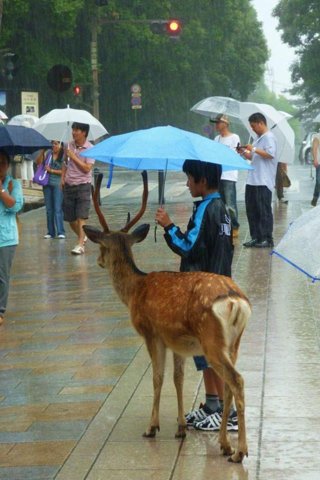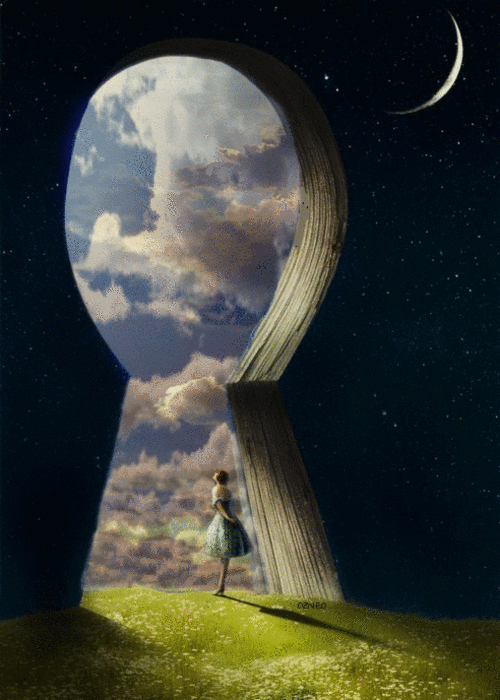I wanted to say a few words about mothers, about becoming a mother. The name of this talk is called becoming a mother. I wonder if we could go round the room and everyone would say the first word that comes to mind, when you hear the word mother. (each person says their word, and the group chants it)
Last year we hosted my friend Dirk from Australia. He came and showed his movies, which I think were difficult for some folks to get a hold of. What is going on here? Why do the pictures look like that? They come from a personal archaeology of seeing, a deep dig, and sometimes these private languages are the only way we have to communicate our most personal truths.
So, a couple of weeks ago, Dirk wrote me an email. It started like this: “Hope things are good. Life goes on. Back at uni dealing with duplicities and superficialities. But more importantly my 95-year-old mother passed away in the nursing home a couple of weeks ago. It changed many things. I sat with the body, her mouth open, looking up and past me for an hour. I talked to her (in Dutch of course) and had a good cry on my own, like a little boy.”
Like a little boy he says. He’s crying like a little boy. She brings him to that place, his mother is like a car that brings him to an old place. When you’re little you’re defenseless, the world is so big, the people are so big, and you don’t get to decide what to do, instead people are always deciding for you. Now we’re going to eat (but I’m not hungry), now you have to go to bed (but I’m not tired), now you have to go to school (I don’t want to go to school today). When you’re an adult, I think it takes a lot of strength to allow yourself to be so weak, so open to experience, meaning of course: that it’s so easy to hurt you. When you’re in this place, when you’re a little boy, when you’re a little girl. It’s so easy to be crushed there.
Dirk: “It was a gentle face. I touched her hand like I had done so many times before, two days before, when I tried to feed her and the food dribbled down her mouth. She tucked at her napkin in the same way she always tugged at her dress. I bent her fingers, and her dead body resisted. They gave me her ring as they took the body away and they all stood in silence, all the nursing home staff, it is their ritual which they perform almost every day. I thanked them for looking after her, after Hilda, my mother, almost as a whisper. Something was finished.”
You can hear the way Dirk is so close to his mother, her finger has become the whole world. He says: “I bent her fingers,” or else he says: “She tucked at her napkin in the same way she always tugged at her dress.” He’s awake to his mother, he notices the small worlds her fingers inhabit. And then he zooms out, and he takes in the whole scene, and he sees all the nursing staff standing in silence, and he calls it a ritual, and he says, heartbreakingly, that it’s something they do “almost every day.” This moment of death, which is so private, so full of anguish, is also part of all the other dyings that have happened in this place, and all the other dying places. Can you feel how the view, the frame, closes on a finger, and then it opens to include everything, everyone who has ever died. Could we call this the movement of grief? When someone you love dies they make a hole in you, part of you leaves with them. The sunny afternoons you shared, even the intimacies of anger or disappointment, all gone bygones.
Here is Dirk’s concluding paragraph. It’s different in style than what has preceded it. He’s swallowed the whole world, he’s watched her hands, she’s been taken from the room and now only he is left. He writes in a kind of stunned prose, like a brick layer working by habit, putting one word, and then the next, into place.
Dirk: “Somehow my sons are now more important to me than ever. My love now settles with them. I help them and they thank me, I like that. It was proper that I now should be next in line, rather than them, they must hang on and have a life. I am not going to die tomorrow but I am throwing many things out. I throw something out everyday. Every rubbish bin is full. I have said goodbye to two piles of hard rubbish in one week.”
I think I hear him saying that: my mother shows me what I really need and on the other hand what is rubbish. My mother allows me to know for sure what I love. I am haunted by this line: “They must hang on and have a life.” Is that what life is, just: hanging on? I know he seems to be talking about his sons, but I can’t help wondering: is that the way life is for my friend? Is he just hanging on? And when he talks about “throwing many things out,” and that this is part of an ongoing process, doesn’t he infer that at the end, in the last hour of the last day, he will have to throw himself out too?
When I meet him now, Dirk’s body is large and soft, and he has that perma white beard and those soft eyes that notice everything, and the quick smile, and I can’t help thinking that he’s like a mother. He has a quality in him that makes him want to take care of you. I think we all have people in our lives like this, or I hope we do, people who are extending themselves, who are reaching beyond themselves, over and over, so that they can take care of others. And part of this extension can be a way of listening, part of the way they are, part of the way these mothers are, is that they listen to you. Even though they haven’t said anything yet, even though they’re just sitting on the couch, or they show up in your yoga class, or they’re sitting beside you on the cushion, something about their face is asking: what do you need? How can I help you?
It’s a gift to be able to tell someone how they can help you. It’s a gift to be able to tell your mother, and all the mothers in your life: this is how you can help me. To allow yourself to be something a bit less, to be incomplete, to show the holes in your life. It’s a difficult task, it’s an intimate sharing. It allows the other person to become a mother, and of course, being vulnerable in this way carries this terrible risk: that they will refuse, that it will be too much, or too little. I think becoming a mother always carries a risk. How can we have the strength to say: This is what I don’t have. This is what I don’t know how to do. I don’t know how to look after myself. I don’t know how to take a day off. I don’t know how to stop trying to be perfect. I don’t know how to get out of bed. I don’t know how to stop.
It makes me think that there could be two sides to mothering, to becoming a mother. That the role of “mother” arises out of conditions, and one of those conditions is that someone allows you to step into that role.
Developing equanimity is a preparation to recognize all beings as our mother.
Martine Batchelor: “I had a friend once going through a difficult time. I asked her what I could do to help.” (If Buddhism was a religion… in some countries it’s practiced as a religion, and you can tell someone is a Buddhist because they go to the Buddhist temple. But in secular Buddhism, you can tell someone is a Buddhist because they ask this question: what can I do to help? It’s very clear, and practical, and it happens in this moment between us. This is the question Martine poses to her friend who is having a hard time. How can I help you? Her friend answers…)
She asked me to visit her mother who was in an old person’s home. Before I went, I was full of Buddhist ideas, thinking it would be a great opportunity for me to tell her about death and change, that surely she would benefit from that. However when I met her, it was not one of her good days. She was terribly frightened because she kept seeing huge insects in the room that were not there. So the main thing I did when visiting was to distract her and remind her of the good things she had enjoyed in her life. To be able to do this I had to get to know her and ask about her life and her interests. Whenever she would become anxious, I would bring the conversation back to cricket or country walks, or jam or pruning roses; no mention of death or change. It was totally inappropriate. What she liked most about me visiting her was that I could sit quietly with her and she found that very restful. Love asks us to be open to the conditions that are present and respond to them wisely.
One of the active elements of love is giving. The Buddha was very clear about giving. He said there were four types of people: the ones who gave only to others, the ones who gave only to themselves…”
What are the other two types of people? The first is the ones who give only to others, but they don’t know how to give to themselves. The second person can only give to themselves, they don’t know how to give to others. What is the third type? (discuss)
The third type is someone who gives neither to themselves or to others. The fourth is people who give to both themselves, and to others.
Martine: “The Buddha encouraged people to cultivate the fourth option. One essential thing we can give to ourselves and to other people is time. Modern aphorisms say ‘time is money’, ‘there is no time to waste’. You can become quite stingy with ‘our time’. We are too busy, we do not have the time. Can we give love and compassion when we are busy? Can we find the time to stop and respond? Once my teacher, Master Kusan, was being rushed along. A car had arrived. He was supposed to go to an important meeting in another town. All the administrators were very excited and pressing him to leave in good time. I just happened to pass by and, as was the custom, bowed to him and wished him a good journey. He stopped to acknowledge my greeting and then asked if a monk, called Popchon, still had the flu. I answered yes so he turned back and went to his room to get some orange juice to give to monk Popchon. What impressed me is that he did not grasp at the busyness around him but found the space and time to stop, be kind and concerned, and respond in a practical and loving way.
Giving comes more easily than receiving. Receiving is also part of love. When someone gives us praise or is grateful, notice that we often push this away, saying that it was nothing or that we were not good at all. When someone is giving something to us, it is important to graciously accept it. However we must be careful about the feeling of indebtedness. We receive something and straight away we are thinking of what we need to give in return. Just give and just receive. Nothing else is needed. Whatever comes next is something else and will engender its own set of giving and receiving circumstances. Giving, receiving, love back and forth, this is enough in itself.”
Receiving is also part of love. She might have also said: receiving is also part of how we might welcome our mother into our life.
Here’s Mark Epstein (WGBH Forum Network), noted psychiatrist and excellent writer: “Emptiness is a Buddhist concept, the Sanskrit word is shunyata. The meaning of the word ‘emptiness’ comes from the emptiness of a pregnant womb. The root of the word goes to a syllable that means ‘seed.’ Emptiness is not a void like we think of as ‘dead’ or empty. It’s void like a pregnant womb is full, containing everything. The Buddhist idea is that there’s no such thing as an isolated individual, or an isolated object, that because everything is in its essence empty, nothing can exist as a thing in its own right, by itself…” all by itself, instead we are made up of parts of each other. Like the seed in a mother’s belly. Like a mother and a child. In other words, emptiness is another way of saying interdependence, or interbeing, as Thich Nhat Hahn likes to say. What better picture of interbeing than a mother and a child?
So we find at the root of this key Buddhist idea of emptiness, we find the mother. The mother is the emptiness that contains everything.



